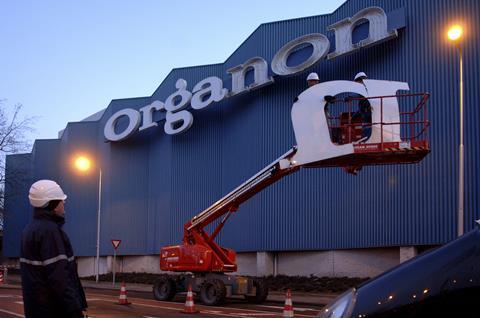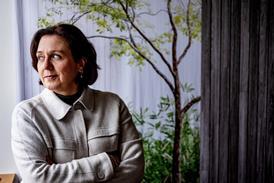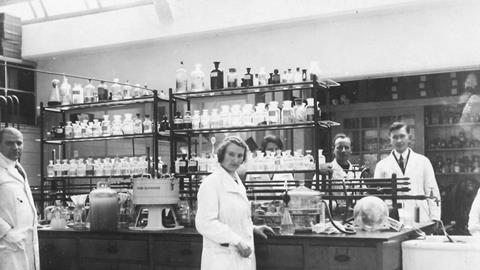Organon is back - but with a broader mission than before. The company focuses on women’s health, but no longer just in the context of reproduction. ‘Many disorders are unique to women or manifest themselves differently in women’, says director Petra Willems. ‘Some drugs work differently for them. Hence, women’s health often requires a completely different approach.’
A ‘startup with 100 years of history’ - that’s how director Petra Willems described the ‘new Organon’ in the Dutch paper Financieele Dagblad in January. Organon is a new company, with a new mission and organization, but with roots that go back to 1923. The activity from which Organon emerged even dates back to 1887. In that year, Arnold van Zwanenberg, descendant of a family of meat and cattle dealers, founded Zwanenberg Slaughterhouses and Factories in Oss.
In addition to meat products, the company marketed a wide range of by-products, such as margarine, fat and soap. But son Saal van Zwanenberg soon developed a completely different ambition: making medicines from leftover animal organs. Insulin from the pancreas of pigs and cattle, estrogen from the ovaries of horses. And so in 1923, exactly a century ago, Organon came to be.
‘The solution may be as simple as an adjusted dosage’
The first product after insulin was Ovarnon (1924), which helped women in fertility trajectories and during menopause. In 1962, Lyndiol entered the market, one of the world’s first oral contraceptives, followed by the IUD (1974), the oral contraceptive Marvelon (1981), the subcutaneous contraceptive implant (1998) and the contraceptive ring (2003).
Organon is back
In 2007, the name ‘Organon’ faded into the background when the company was transferred from Akzo Nobel to Schering-Plough, and merged into MSD two years later. ‘But now the name is back,’ says Willems. Organon was spun off from MSD in 2021, as an independent global organization with a focus on women’s health.
‘This goes beyond just contraception or fertility treatments’, emphasizes Willems. ‘It is high time for targeted and equal attention for women in healthcare.’ There are many conditions that uniquely affect women, she explains, such as cervical cancer, severe bleeding after childbirth, and menopausal symptoms, which often go untreated. In addition, there are neurological, immunological and cardiovascular disorders that disproportionately affect women, such as migraine, or that manifest themselves differently in women than in men, such as heart attacks.
‘Thirty percent of heart attacks go unrecognized in women’
Traditionally, however, medical research has mainly focused on the male body and the effects of treatments on it. That is why, according to Willems, women do not always receive an optimal diagnosis and treatment. ‘Did you know that 30 percent of heart attacks go unrecognized in women, compared to 16 pecent in men?’ she asks. ‘While men often experience chest pain radiating to the left arm, women are more likely to experience pain between the shoulder blades, or severe fatigue and nausea. Heart attacks in women often have a poorer outcome due to underdiagnosis and undertreatment.’
Network
Organon’s R&D department is searching for female-specific solutions for such syndromes. Willems: ‘Sometimes the solution may be as simple as an adjusted dosage. In other cases, a completely different treatment may be required.’

Willems effortlessly reproduces a number of statistics. In the Netherlands, 1 in 7 women is diagnosed with breast cancer. Compared to men, women over the age of 60 are twice as likely to have bone fractures due to osteoporosis; in total, this concerns half a million Dutch people. Migraine affects 2 million Dutch people and is 3.5 times more common in women than in men. And one in 10 women gets endometriosis – thickening of the endometrium – during her childbearing years, but on average five to ten years go by until there is a correct diagnosis.
At launch, Organon’s portfolio comprised more than 60 established branded medicines. ‘This number will rise quickly’, predicts Willems, ‘partly thanks to our global collaborations, also outside Organon. For example, there are about 140 innovations from smaller parties that we can make available for use more quickly, together with new partners. Organon has the worldwide network and distribution facilities to do so. In this way we can help make a real difference to women’s health.’
Worldwide
Organon got off to a flying start thanks to its strong ties to MSD. Organon now has a presence in 58 countries and supplies pharmaceuticals and other products in approximately 140 countries. The company has more than 9,000 employees worldwide, of which more than 2,000 are in the Benelux. Two of the six production facilities are also located there. This means that the Netherlands and Belgium have a major role in the new Organon, with large modern production facilities in Oss and Heist-op-den-Berg and offices in Amsterdam and Brussels.
Collaboration
Since 2021, Organon has acquired several companies worldwide, including Alydia Health, which develops medicines against severe postpartum bleeding, Forendo Pharma (endometriosis) and Cirqle Biomedial (non-hormonal contraception). In addition, Organon works closely with Obseva (premature births) and with Titus Health Care, a Dutch company that supports gynaecologists, obstetricians, abortion specialists and general practitioners in contraceptive care.
















Nog geen opmerkingen